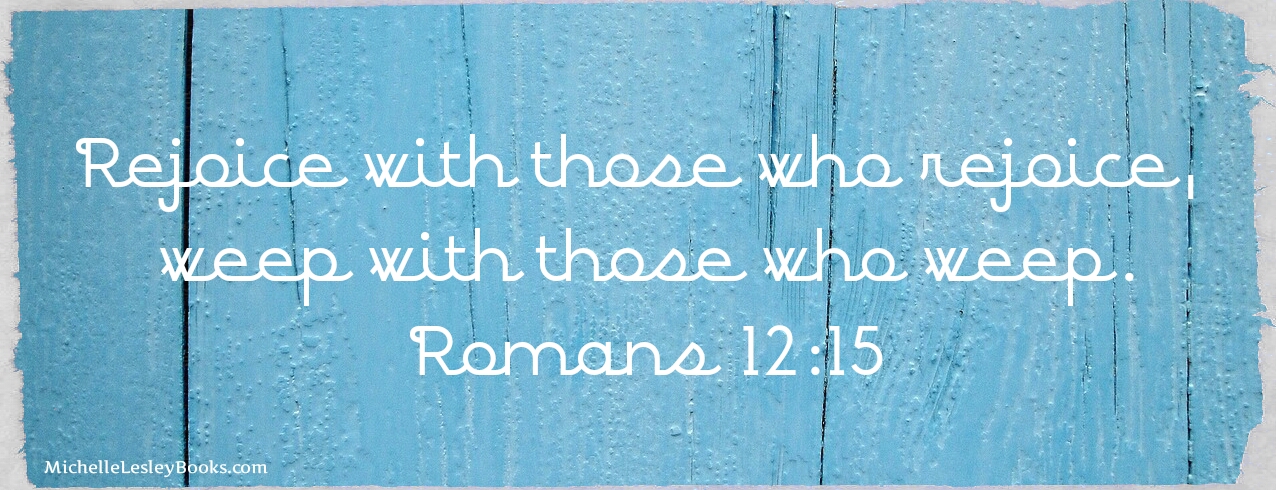
It was the week after the historic Louisiana flood of 2016. I was driving down the road, if sitting through three red light cycles per intersection due to horrendous traffic could rightfully be called “driving,” that is. Hot and sweaty, filthy, emotionally drained, and exhausted from cleaning and hauling, I was making my way from my friend’s flooded house to help out at my ninety-five year old grandmother’s flooded house, guilt-stricken that I couldn’t be in both places at once.
And that’s when I heard it.
I was listening to one of my favorite theological podcasts, and when the host began talking about the flooding in Baton Rouge, my ears perked up. He began talking about God’s sovereignty- that, because God always does what is best for believers – for our discipline, growth in holiness, increased dependence on Christ, and the like – that this flood was good for us. He said it kindly, lovingly, and backed up with Scripture. And he was absolutely right.
Yet, three days after a life-altering catastrophe, with a heart still raw and broken for my loved ones and my community, it was exactly what I did not need to hear.
It’s crucial to bring good theology to bear on every situation we face in life. We need to apply Scripture to the situations we go through in order to help us make biblical sense of things, walk obediently, give thanks, and glorify God.
And yet, the Bible doesn’t say, “Give a theology lecture to those who weep.” It says, “Weep with those who weep.” Why? God is all about the Word, isn’t He? Why wouldn’t He want us to jump right in and exhort hurting people with scriptural principles?
Because He knows us. He created us.
People need a minute to take a breath and absorb everything that has happened to them before their hearts and minds are ready to transition into thinking theologically about the situation.
Sometimes we just need to sit and cry for a while. And maybe we need someone we love to sit and cry with us. No Romans 8:28. No talk about how God is going to use this to grow us. No discussion of whether God “caused” or “allowed” this tragedy. Just some time to grieve without having to think. And God’s word says that’s OK.

Even Job’s companions, poor theologians though they were, got this part right:
Now when Job’s three friends heard of all this evil that had come upon him, they came each from his own place, Eliphaz the Temanite, Bildad the Shuhite, and Zophar the Naamathite. They made an appointment together to come to show him sympathy and comfort him. And when they saw him from a distance, they did not recognize him. And they raised their voices and wept, and they tore their robes and sprinkled dust on their heads toward heaven. And they sat with him on the ground seven days and seven nights, and no one spoke a word to him, for they saw that his suffering was very great.
Job 2:11-13
But sometimes, even with the best of intentions, maybe without even realizing it, we skip the vital step of making an appointment to sympathize with and comfort our suffering loved ones. We neglect to rend our hearts and sit on the ground and weep with those who mourn. We fail to see that their suffering is very great. And yet this is one of the very ministries Christ calls us to.
For everything there is a season, and a time for every matter under heaven.
A time to discuss theology, and a time to weep with those who weep.


When our 17 yr old passed into glory, the 1 comment that I have held close
after 15 years now was the one spoken by a ministry couple in our church who
we knew only from afar…..he said to us what wonderful, caring and loving parents
he had seen in us ea h week at church with our son…how we were so totally
devoted to him and we’re so joyful alongside him. You see, our son obviously had
a muscular challenge since birth. This couple observed our love and total
commitment to him, as this gentleman expressed in his conversation.
It was the one comment that was so touching……someone knew the great joy
we shared in our son. Only joy. He noticed. I will never forget the
conversation. It lifted my broken heart and totally void inner waves.
I’m hoping this will help others ministering to the loss in others.
LikeLiked by 3 people
Hi DD-
I’m so sorry for your loss, but so encouraged by your joy and by your friends who gave you “a word fitly spoken” (Proverbs 25:11) in your time of need.
LikeLike
Reblogged this on Tamar weeps–how will the church respond?.
LikeLike
Yes. How many times have people seen my pain and instead of companionship and love offered me cold words. I’ve left the church where the ex-military pastor dispensed a ‘pull yourself up by your own boot straps’ theology. He told me in my pain that he doesn’t make other people’s problems his problems.
LikeLiked by 1 person
If Jesus had thought this way we all would be eternally lost.
LikeLike
Can you explain what you mean by that, Rachel?
LikeLike
Because Jesus was willing to take our sin and suffering upon Himself He went to the cross and died in our place. He didn’t keep His distance from us emotionally. Therefore, we, His people, need to make ourselves vulnerable to one another–risky as that is.
LikeLike
Thank you for this post, Michelle. After our granddaughter, Gwen, age 15, died from the injuries she sustained in a horrible car wreck, it was a long time before I could handle hearing, “O death, where is thy sting? O grave, where is thy victory?” The knowledge that Gwen was saved was, indeed, our consolation in the face of this catastrophe, and, yes, I know that the grave has no victory over her. But, the sudden, violent death of a healthy child has plenty of sting to it, as do many other types of losses people endure. I look back on it now and see it as having been useful in helping me learn to have a charitable attitude toward those who want to help and just don’t know what to do or say, to look past the awkwardness and see the desire to encourage. I have been among them myself and I guess I will be again. At the time, though, it was dismaying for people to be so tone deaf.
LikeLiked by 1 person
I’m so sorry for your loss. Thanks for sharing your story.
LikeLike
Excellent points. Thank you!
LikeLike